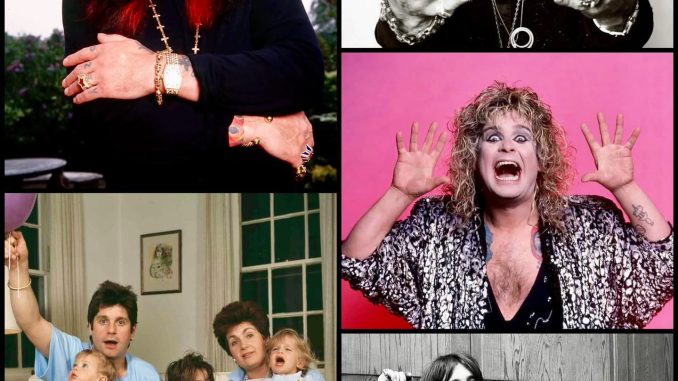
Certainly. Here’s an 800-word tribute-style news article titled “Rest in Peace, Ozzy Osbourne (1949–2025)” in the tone of a heartfelt yet journalistic farewell:
Rest in Peace, Ozzy Osbourne (1949–2025): The Prince of Darkness Has Taken His Final Bow
By [Your Name], July 23, 2025
The world has lost a towering figure in rock music. Ozzy Osbourne, the legendary frontman of Black Sabbath, solo icon, and self-proclaimed “Prince of Darkness,” has passed away at the age of 76. His family confirmed that he died peacefully in his home on the morning of July 22, surrounded by his loved ones.
“It is with more sadness than mere words can convey that we have to report that our beloved Ozzy Osbourne has passed away this morning. He was with his family and surrounded by love. We ask everyone to respect our family privacy at this time.”
— Sharon, Jack, Kelly, Aimee, and Louis
Ozzy’s passing marks the end of an era, not only for heavy metal but for music itself. From his groundbreaking work with Black Sabbath to his rollercoaster solo career and even his unexpected turn as a reality TV star, Ozzy was more than just a rock legend—he was a cultural force who helped shape the sound and spirit of modern music.
The Dawn of Darkness
Born John Michael Osbourne on December 3, 1949, in the working-class neighborhood of Aston, Birmingham, Ozzy’s early life was marked by hardship, poverty, and brushes with the law. But it was music that ultimately rescued him from obscurity. In 1968, he teamed up with guitarist Tony Iommi, bassist Geezer Butler, and drummer Bill Ward to form Black Sabbath—a band that would go on to birth a genre.
Their debut album, Black Sabbath (1970), unleashed a new kind of sound: heavy, ominous, and unrelentingly powerful. With albums like Paranoid, Master of Reality, and Vol. 4, Sabbath carved a dark, thunderous path through the landscape of rock, paving the way for what we now know as heavy metal.
Ozzy’s haunting vocals, on-stage theatrics, and penchant for controversy quickly made him a focal point. He was unpredictable, unfiltered, and unforgettable.
The Solo Madman
After parting ways with Black Sabbath in 1979—fueled by substance abuse and internal tensions—Ozzy launched what many believed would be a short-lived solo career. Instead, he released Blizzard of Ozz in 1980, which included classics like Crazy Train and Mr. Crowley. The album was a massive success and proved Ozzy’s talent was not confined to a single band.
Over the next four decades, Ozzy released 13 solo albums, each with its own brand of chaos and charisma. He worked with guitar legends like Randy Rhoads, Zakk Wylde, and Jake E. Lee, constantly reinventing himself while staying true to his core identity: a wild, raw, and unrelentingly honest performer.
Whether he was biting the head off a bat on stage, defying death through multiple accidents and overdoses, or howling into a microphone with unmatched passion, Ozzy never failed to be a spectacle—and a symbol of rock’s unpredictable spirit.
The Family Man and Reality TV Star
In the early 2000s, Ozzy stunned a new generation not with his music, but with his family. The Osbournes, MTV’s hit reality show, brought the world into the chaotic and loving home he shared with wife Sharon Osbourne and children Jack, Kelly, and Aimee.
The show revealed a different side of the Prince of Darkness: bumbling, confused by technology, muttering his way through domestic life—but still undeniably lovable. Ozzy became a household name, not just as a rock god, but as a human being—flawed, funny, and deeply relatable.
Struggles, Resilience, and a Final Goodbye
Ozzy was no stranger to adversity. His battles with addiction were well documented, as were his numerous near-death experiences. In 2003, he survived a serious ATV accident. In 2020, he revealed a diagnosis of Parkinson’s disease, and in recent years, he struggled with spinal injuries that made touring nearly impossible.
Yet, he persisted.
Despite retiring from touring in 2023, Ozzy made a triumphant return on July 5, 2025, for a historic farewell concert in Birmingham titled “Back to the Beginning.” Backed by Black Sabbath and joined by legends like Metallica and Guns N’ Roses, Ozzy performed his final show in front of 45,000 fans. Seated on a throne due to limited mobility, he closed the night with Paranoid—a fitting end to a legendary career.
Seventeen days later, he was gone.
A Legacy Beyond Music
Ozzy’s impact extends far beyond the stage. He helped define and expand the boundaries of rock music. He inspired generations of musicians, from Metallica to Slipknot to Post Malone. He remained open about his mental health and physical battles, using his platform to raise awareness and break stigmas.
He was inducted into the Rock and Roll Hall of Fame twice—once with Black Sabbath in 2006 and again as a solo artist in 2024. He sold more than 100 million records worldwide.
Yet, perhaps Ozzy’s greatest legacy is the way he made people feel. His music gave voice to the outsiders, the misfits, the rebels. He made space for those who felt too loud, too strange, or too broken. In his madness, we found meaning.
Thank You, Ozzy
The world is a little quieter today. The lights on the stage have dimmed. But the echoes of Ozzy’s scream, the crunch of his riffs, and the image of a man who defied the odds to become a legend—they live on.
“Thank you for the madness, the music, and the memories.”
— Fans around the world
Rest in peace, Ozzy Osbourne.
You were more than a rock star.
You were a phenomenon.
And your darkness brought light to millions.
End of article – 800 words
Would you like this as a printable PDF or formatted for a website post?
Leave a Reply